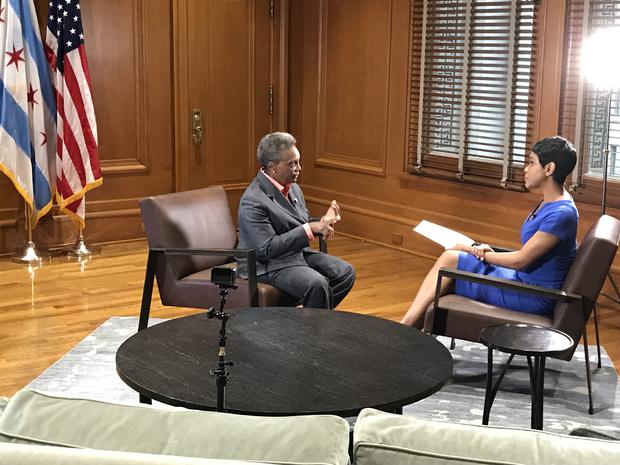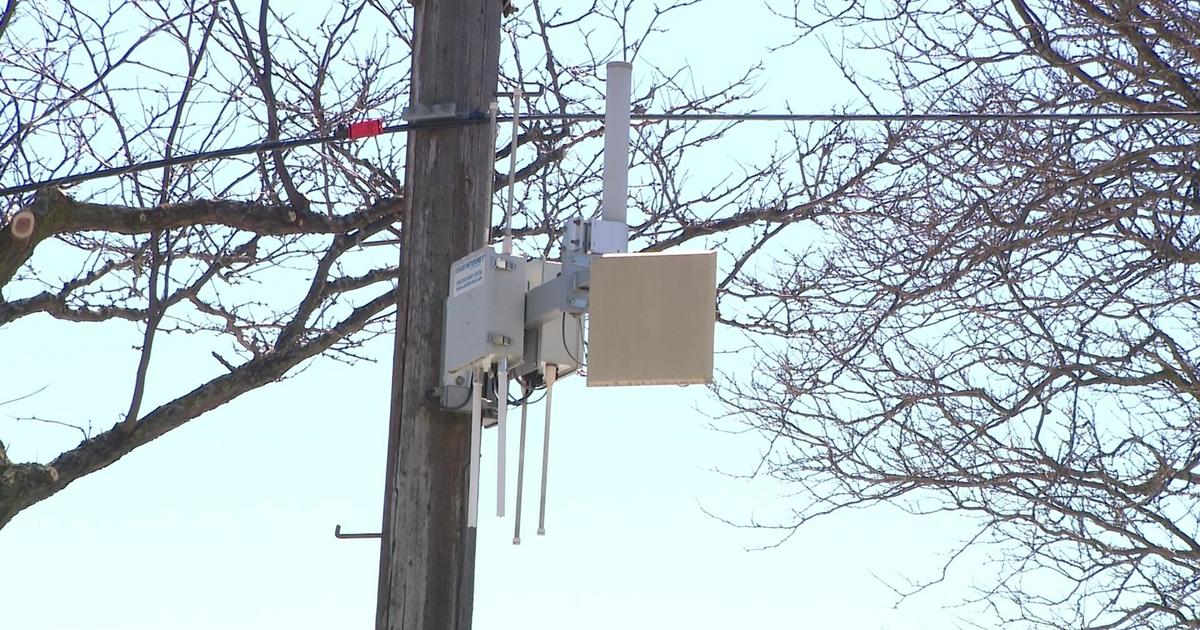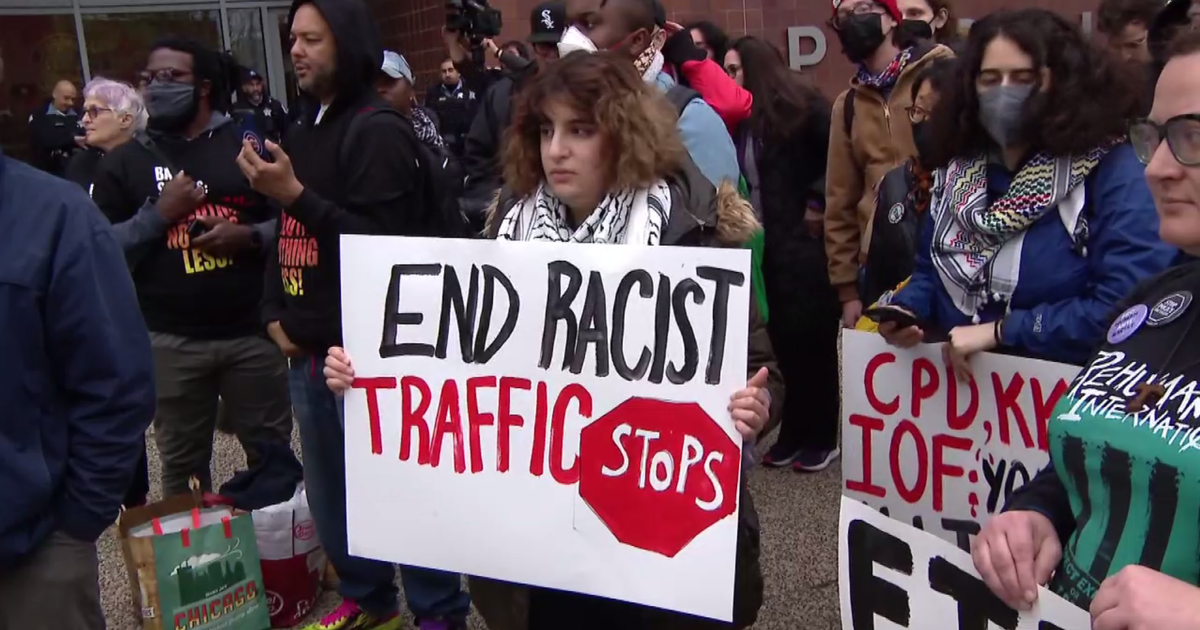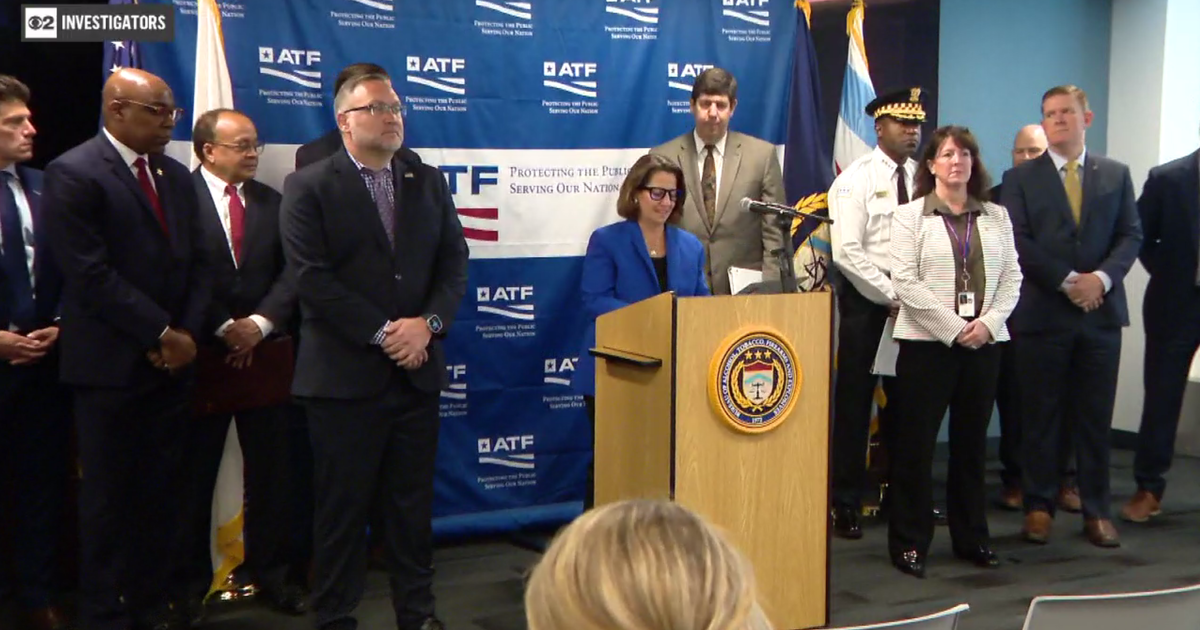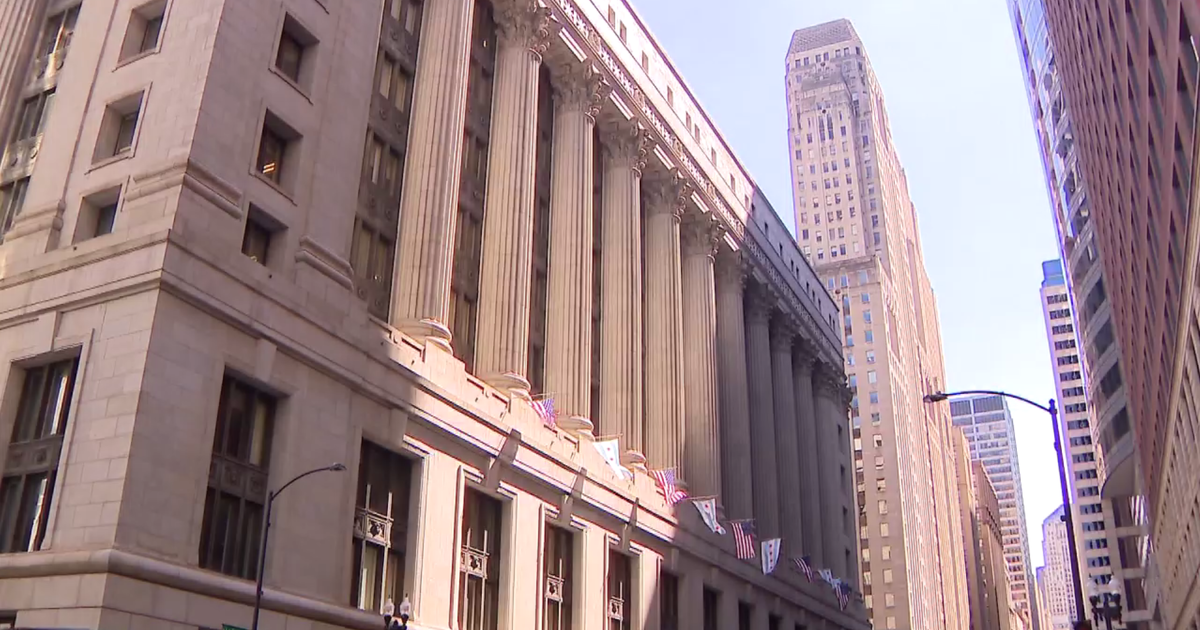100 Days In: Mayor Lori Lightfoot Talks Property Taxes, Wrong Raids By Police, And What She's Learned In Office
CHICAGO (CBS) -- As Mayor Lori Lightfoot completed her first 100 days in office Tuesday, she took credit for a renewed focus on the city's neighborhoods and people – and weighed in on negotiations with teachers, crime, and the repeated problem of police raiding the wrong homes.
The mayor also said while she hopes not to enact a property tax hike to account for a major budget shortfall, she cannot take property taxes off the table.
Mayor Lightfoot sat down with CBS 2's Irika Sargent in the Mayor's office on the fifth floor of City Hall. The mayor acknowledged that many Chicagoans have faced increased property tax assessments that are "shockingly high."
At the time of her inauguration in May, Lightfoot said she would be facing tough choices when it came to the budget – given that Chicago residents have already been hit with significant property taxes and other high fees, but the city is also stuck with ballooning pension payments.
In July, some city residents told CBS 2 that their Cook County tax bills had increased as much as 60% – and some said they might end up having to move, perhaps even out of the city, as a result.
Speaking to Sargent, Lightfoot said the Cook County property tax assessment system – which falls outside of the city's jurisdiction – is "broken and unfair." She also acknowledged that people are still suffering from a historically large increase in property taxes and would have difficulty facing yet another hike.
"So going to property taxes is something that I want to try to avoid, but I can't in good conscience at this point take that off the table," she said.
Lightfoot wrapped up her first 100 days in office as discord was brewing among Chicago teachers. The contract the city has in mind would involve a 16% pay increase over five years, which Lightfoot said the city would not have any trouble funding.
"We have the resources because of the rejiggering of the funding formula that happened a couple years ago. In addition, the City of Chicago will be providing additional TIF resources to the district, so we feel very comfortable with agreeing to the 16% increase over five years that the independent fact finders recommended," Lightfoot said.
TIF funding, or tax increment financing, involves freezing property tax dollars for schools, parks, and other taxing districts in a given zone for at least 23 years, so that all property tax increases afterward go into a separate fund. The funds are intended to bankroll improvements in struggling city neighborhoods, but published reports point out that there has been a surplus in TIF funding in recent years and much of it has gone to the Chicago Public Schools.
Meanwhile on Monday, the Chicago Teachers Union rejected an independent fact finder's contract recommendation – setting up a possible strike if no deal is reached. But the teachers said their issues are not about the money, but rather the need for smaller class sizes, and more special education teachers, social workers and librarians.
Watch Irika Sargent's Full Interview With Mayor Lightfoot:
Fighting Crime In Chicago
Sargent also brought up the persistent issue of crime in Chicago – particularly as Mayor Lightfoot last week ordered a hiring freeze that will affect every city department, including Chicago Police. The September class of police recruits is also being held back.
Lightfoot said she would never enact a policy that would put Chicago's residents in danger or leave police resources insufficient. She noted that the department now has 13,000 sworn members, which she said was "the highest headcount we've had in probably 10 or 15 years."
The mayor said the emphasis needs to be not on the number of officers on the force, but on where and how they are deployed.
"What we're pushing the Police Department to do is look at that 13,000, and look at where those officers are assigned, and making sure that we've got the right resources at the neighborhood level so district commanders have the resources they need to be successful in fighting crime and responding to the needs of residents," Lightfoot said. "But I feel very comfortable with where we are. If we need to make adjustments, we absolutely will. But right now, we're saying to the Police Department, 'Tell us how you're going to deploy those 13,000 sworn members, and do it in a way that continues the progress we've been making in fighting crime.'"
During Memorial Day weekend as the summer season began, Lightfoot and Police Supt. Eddie Johnson announced that there would be targeted raids and deployments at hot spots for violence, and that all high-level police commanders' summer vacations would be canceled. Police First Deputy Supt. Anthony Riccio drew Lightfoot's ire in June for going ahead and taking a scheduled vacation anyway.
But violence on Chicago streets has persisted, with the deadliest weekends of the year to date both having come in the summer months. In the first weekend of June, eight people were shot and killed, and two more people were killed in stabbings. Eight people also were shot and killed the last weekend of July.
On Monday – the day Lightfoot sat for her interview – one man was killed and another critically wounded in broad daylight under the Green Line 'L' tracks at Lake Street and Pulaski Road.
Lightfoot said some context is necessary. She said by comparison with the violent crime rates of the past few years, the city is "absolutely" trending in the right direction.
"Now, I hesitate to even say that, because of course I can't be satisfied when we still have shootings; when we still have homicides. But we are, I think, on a path that is heading in the right direction," Lightfoot said.
Lightfoot pointed to West Side communities such as Austin and those in the Harrison Police District – which includes parts of East and West Garfield Park and North Lawndale – as well as the Englewood and Gresham police districts, which include the Englewood, West Englewood, and Auburn-Gresham communities – as parts of the city that still have major "challenges."
"We've got to keep focused, look at what the data tells us, and then adjust our strategy to make sure that we are putting resources in those areas where we see crime trending," Lightfoot said.
Chicago Police Wrong Raids: How Will The City Make It Right?
Sargent also asked Lightfoot about another matter involving Chicago Police. For nearly a year, CBS 2 Investigators have uncovered a disturbing pattern of Chicago Police officers executing search warrants at the wrong homes based on incorrect or bad information.
The reporting revealed the devastating trauma on families across Chicago, and the lack of trust in law enforcement, left in the wake of these raids.
Mayor Lightfoot committed previously to working with police leadership to find solutions and change the way officers treat children during police raids. Speaking to Sargent, the mayor emphasized that police officers raiding the wrong houses shows a breakdown in procedures and accountability.
"When an officer goes into someone's home with a search warrant, they've made a statement under oath to a judge that there's a probable cause to believe that a crime has been committed, and evidence of that crime will be found in a particular location," she said. "If they're getting that wrong, that's a serious problem, and there has to be accountability."
Lightfoot said anyone who is subjected to a police raid at their home by mistake needs to notify the city – as people already are, "so that we can hold those officers accountable, and their supervisors, who are signing off on search warrants."
But the mayor said there also needs to be change within the Police Department.
"There should be a thorough process of evaluation of the evidence and review by multiple supervisors before they even put together the affidavit and take it to a court," she said. "And if they make a mistake, we have to make that right. But the mistake shouldn't happen."
Body camera footage and interviews with families obtained by CBS 2 revealed allegations of officers pointing guns at children, handcuffing innocent parents, destroying property and even handcuffing an 8-year-old child during these incidents. CBS 2 has interviewed 23 children as part of this series. Many of these raids occurred after police failed to take additional steps to verify information provided to them by confidential informants, our reporting found.
Inspector General Joe Ferguson has also launched an internal investigation into how police are vetting information, and obtaining and executing search warrants, specifically for raids in which children are present at the home in question.
The Mayor's Thoughts On What She's Learned 100 Days In
Sargent went on to ask Lightfoot what she has learned in the time she has been in office. Before being elected mayor, Lightfoot had served as a private attorney at the firm Mayer Brown, an assistant U.S. attorney, the head of the former police Office of Professional Standards, and president of the Chicago Police Board, among other roles. But she had never previously served in an elected role.
"I don't think of myself as a politician. I think of myself as a public servant. And I've learned a tremendous amount," she said. "I mean, it's been invaluable to me to be in neighborhoods and talking to residents all over the city. It's been invaluable to me to be with young police officers – out at districts, going into the districts themselves, looking at what the technology resources are available – so my learning has been increased exponentially by the travels and the conversations that I've had, and that I will continue to have over my entire tenure as mayor."
Lightfoot said what keeps her up at night as mayor is the young children she sees suffering in distressed areas of the city.
"I get in my car and I drive away to my family – I worry about those children. I wonder if I will see them again. I wonder what their life is going to be like. But that worry is also a challenge and an opportunity for me to really stay focused on making sure we're doing everything that we can to really support those children in those neighborhoods," she said. "That is a thing that I take with me. It weighs on me, but it also motivates me to make sure that we're doing everything we can to help our residents."
Lightfoot declined to rate her first 100 days as mayor with a letter grade. But she did tick off a long list of achievements she said she is proud of – particularly when it comes to a focus on the city's neighborhoods and people in addition to business and development. Lightfoot in particular noted the Fair Workweek ordinance that would guarantee many workers notice of their schedules ahead of time, the push for a $15 minimum wage, and investments in the education of the city's children.
"I think that we have started a conversation around affordable housing and economic development that are really, really productive because we're engaging people in neighborhoods and not just dictating to them, but working in concert with them. And I think we've recalibrated how we govern by making sure that we're really putting people first, and that we're going out to neighborhoods and engaging with relevant stakeholders," the mayor said. "So I think we've laid a really good foundation for the future."
Written by CBS 2 Web Producer Adam Harrington
